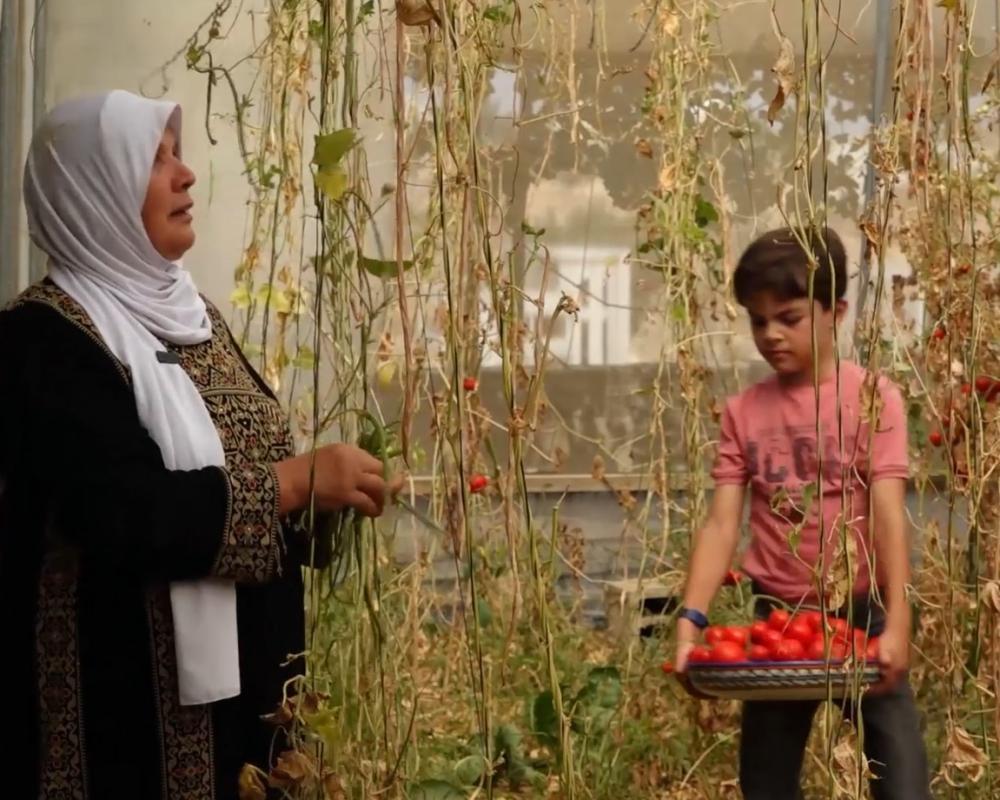Hebron, West Bank / PNN /
As Israel’s war in Gaza and sweeping restrictions in the West Bank deepen an economic crisis, many Palestinian families are turning back to home-based farming and food preservation as a way to endure.
With wages delayed after Israel withheld tax revenues from the Palestinian Authority, and thousands of laborers barred from jobs inside Israel, households are reviving old practices of growing crops around their homes, storing food, and relying on traditional methods passed down through generations.
For Palestinians, farming has long been more than a livelihood — it is a form of resistance and survival. Women, in particular, not only work the fields but also preserve crops using ancestral techniques, turning tomatoes, grapes, olives and dairy into staples that help families remain self-sufficient.
In the southern West Bank town of Dura, farmer Fatima Masharqa has cultivated her land for years, growing tomatoes in a family greenhouse. She recalls learning from her parents how to preserve produce, especially tomatoes, to feed the family year-round.
“Even today, I make it the same way my mother did,” Masharqa said. “It isn’t tiring — I actually enjoy it.” She sorts her harvest into ripe red tomatoes, green ones for pickling, and unripe fruit for later use. Some are blended and bottled for dishes like tomato stew, while others are simmered into a thick paste and sealed with olive oil for use as a sauce that lasts up to three years. She also sun-dries tomatoes for storage.
Masharqa says her homemade preserves are healthier, tastier and free of additives compared to factory-made products. Yet she worries younger generations are less interested in learning these traditional methods. “My daughters are only now beginning to understand how important this is,” she said.
Despite economic hardship, Masharqa insists she will not abandon her land. “I will never leave Dura, no matter what happens. This land is my blood and soul,” she said. “We eat from its soil to live.”
For her and many others, cultivating and preserving food has become both a necessity and a declaration of staying put amid war, settlement expansion and what Palestinians see as a policy of forced displacement.
This story was produced as part of the “Qarib” program, implemented by the French media development agency CFI with funding from the French Development Agency (AFD).





Source link
#Hebron #Palestinian #Families #Turn #Homegrown #Farming #War #Economic #Strain

